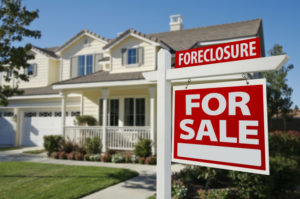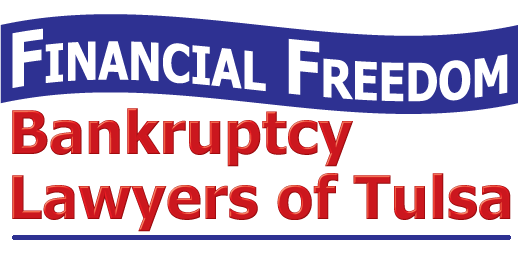Oklahoma Bankruptcy HelpWill Filing for Bankruptcy in Oklahoma Stop Foreclosure?

Home Is Where The Heart Is
Home is where the heart is, or so they say. In reality, a home is four walls and a roof for most people. For many families, their home is their greatest investment. One thing most people agree on is no one wants to lose their home. Yet many of the nicest homes also tend also to be mortgaged homes. As a result, many homeowners eventually ponder the question: “Will filing bankruptcy in Oklahoma stop foreclosure?”
There is no single answer for all circumstances. Home foreclosure depends on a variety of factors that ultimately decide where your family will reside during and after a bankruptcy. If creditors have notified you they intend to start the process of foreclosing your home, you should act fast. Call an experienced Tulsa bankruptcy attorney to see what you can do for your home during bankruptcy.
How Can Bankruptcy In Oklahoma Stop Foreclosure
Bankruptcy is a legal process that affords relief in situations where someone has run out of options to pay off their debts. Depending on the individual’s circumstances, a person will usually do one of two things: liquidate their assets in a Chapter 7 bankruptcy or restructure their payment plans with a Chapter 13 bankruptcy.
Both kinds of bankruptcy have their benefits. Chapter 7 bankruptcy allows people a chance to escape their debts by liquidating all of their nonexempt assets. On the other hand, Chapter 13 bankruptcy allows people to restructure their finances so that they are more manageable. One note to keep in mind is both chapters require some kind of reaffirmation to keep your home long term.
When confronted with a bankruptcy filing, a creditor can agree to settle the debt in various ways. Debtors may put their house up for sale to generate money owed to the creditors. Some creditors prefer to settle the debts by foreclosing on homes or taking earnings out of the debtor’s paychecks. Other creditors may allow debtors to restructure their payment plan to better suit the debtor. No matter the decision, once a foreclosure is complete there is little anyone can do to reverse the action.
Stopping Home Foreclosure
Home foreclosure happens when a debtor fails to pay their mortgage. If a debtor fails to pay their house payments on time, their creditor can foreclose the debtor’s home. Essentially, the creditor can sell your home if they do not receive payments in a timely manner; these are called delinquency payments. Foreclosure takes time, so the debtor has some time to come up with a solution.
However, home foreclosure can be very tricky. Results primarily depend on one detail, which action came first, the foreclosure or the bankruptcy? When you file for bankruptcy before your creditor starts a foreclosure on your home, you have a chance to remain in your home throughout the remainder of your bankruptcy. On the other hand, creditors who foreclose on your home before you file bankruptcy can ask the bankruptcy court for permission to auction or sell your home.
The main thing to remember is that whichever action comes first, has the support of the government in their actions. For example, the government will allow debtors to live in their current residence until their bankruptcy is complete. Creditors may continue with a home foreclosure once the bankruptcy is officially complete. In cases like this, most homeowners seek Chapter 13 bankruptcy.
Keep Your Home With A Chapter 13 Bankruptcy
Chapter 13 bankruptcy works by restructuring debtors’ finances to make bill payments easier to maintain. Creditors may not foreclose on a person’s home if they keep up with a Chapter 13 plan to make up for their missed payments. Debtors and creditors can come to an agreement on how payments work moving forward. Most lenders will want debtors to pay their oncoming monthly payments while also repaying any missed mortgage payments.
Delinquent payments should be caught up sooner rather than later, as mortgage payments are interest-bearing. Interest simply means debt can grow if payments are insufficient or late. When structuring your Chapter 13 bankruptcy, it is important to consider talking with an attorney to see how you can pay your mortgage if you intend on keeping your home.
Low-cost Consultations With A Bankruptcy Attorney
Owning a home can be difficult. Unexpected maintenance can cost hundreds of tens of dollars. Then there are property taxes, insurance – even homeowner association fees for some people. Taking out a second mortgage can feel like the only option, but it can ultimately cost homeowners everything. For those wondering if bankruptcy in Oklahoma stops foreclosure, it can. However, bankruptcy is only a temporary solution. Further counseling with a Financial Freedom Bankruptcy attorney may result in more permanent results.
To start your initial consultation with a Tulsa Bankruptcy Attorney, call (918) 786-9600. You may also send questions regarding your home mortgage and bankruptcy using the consultation button throughout this Website.




